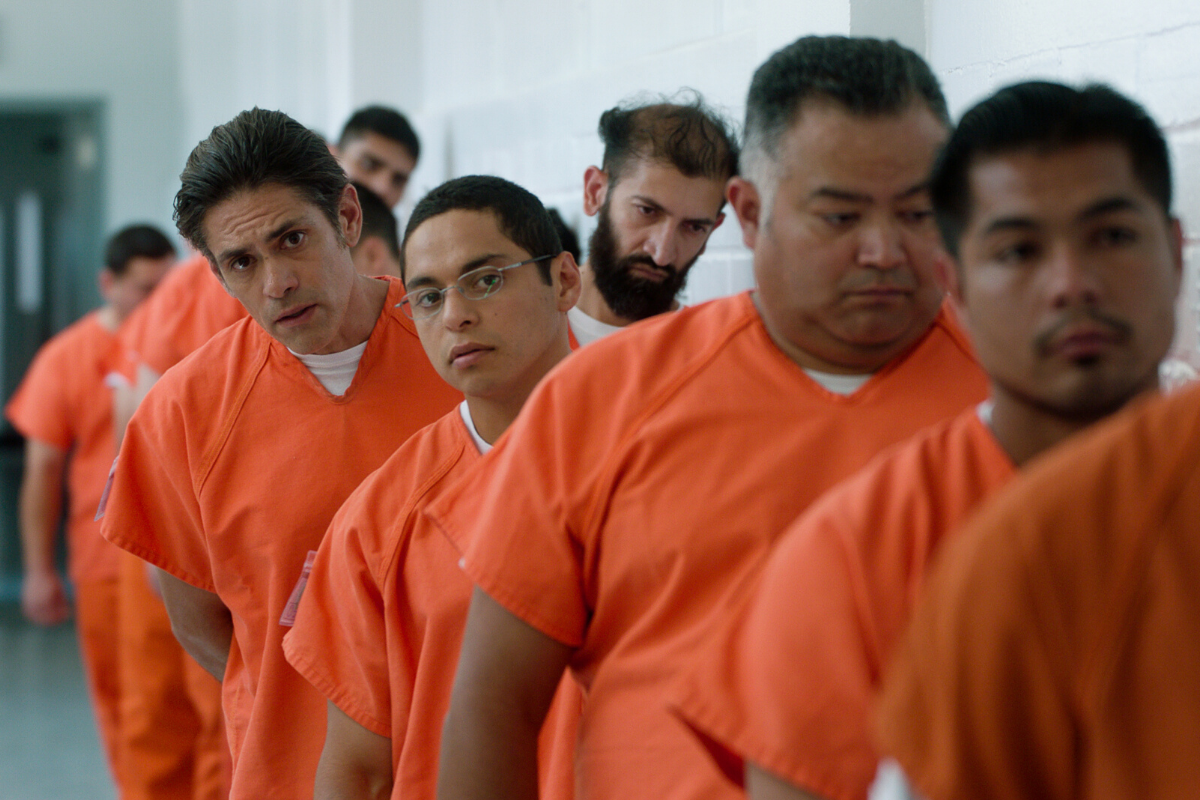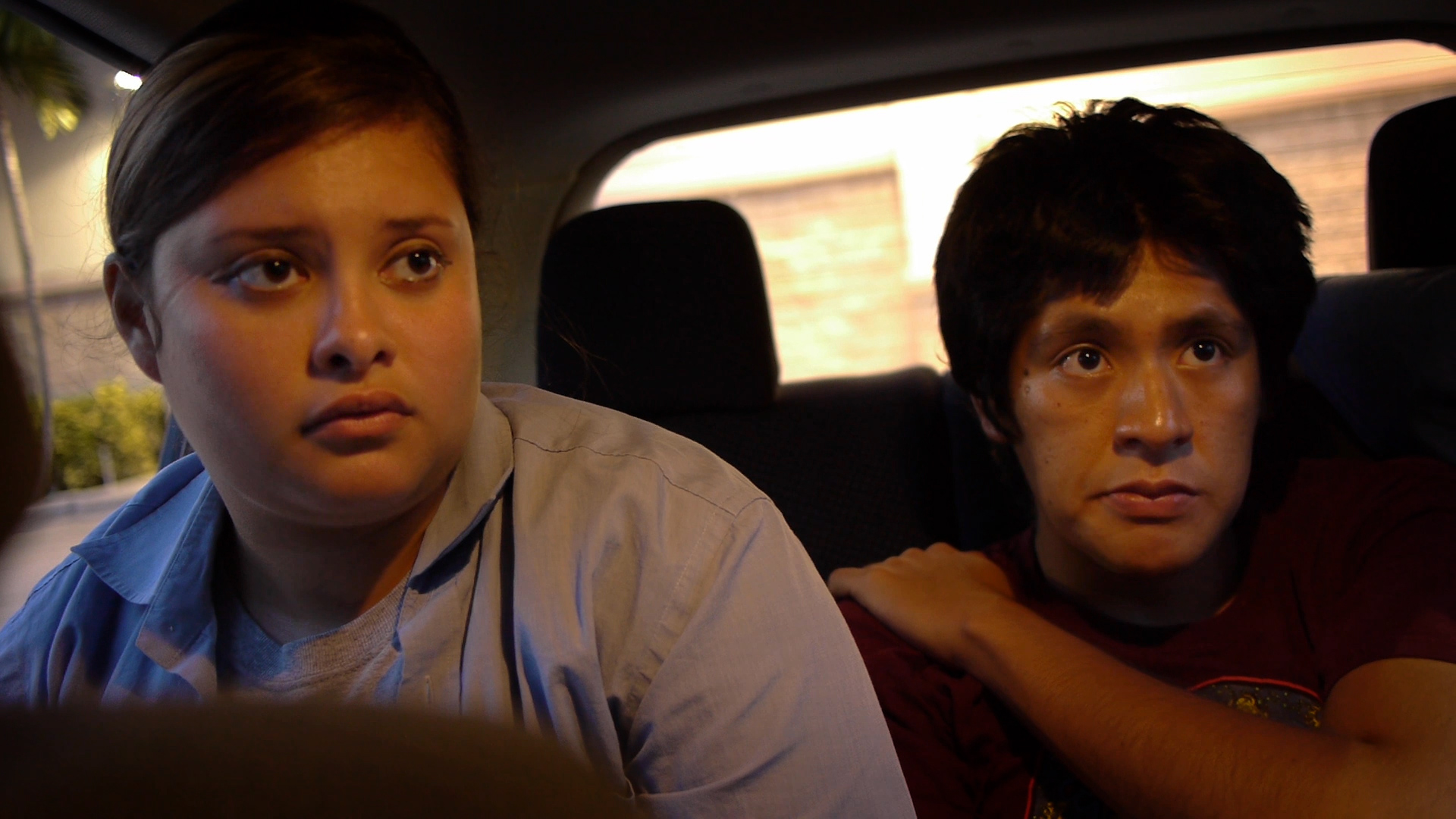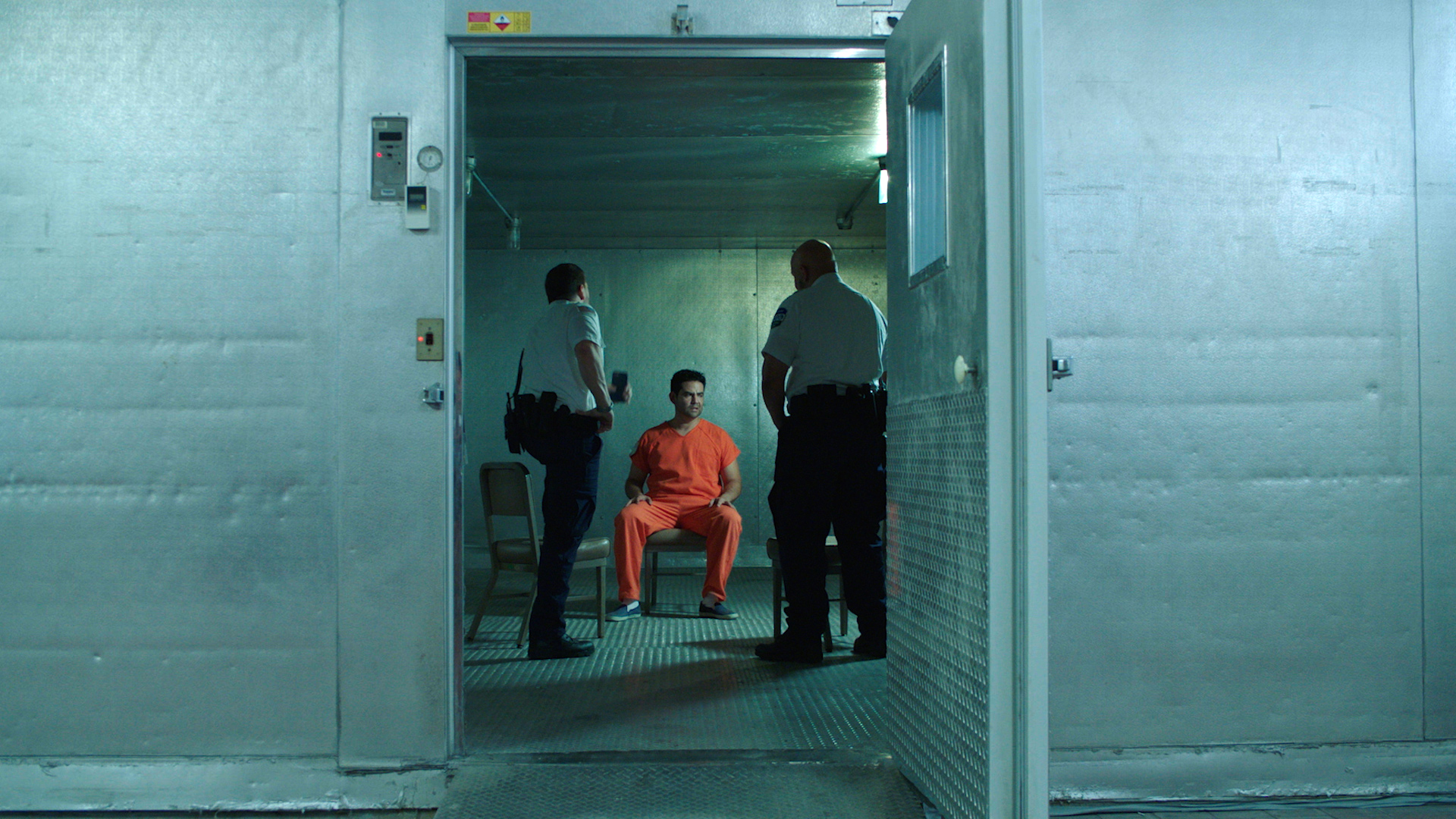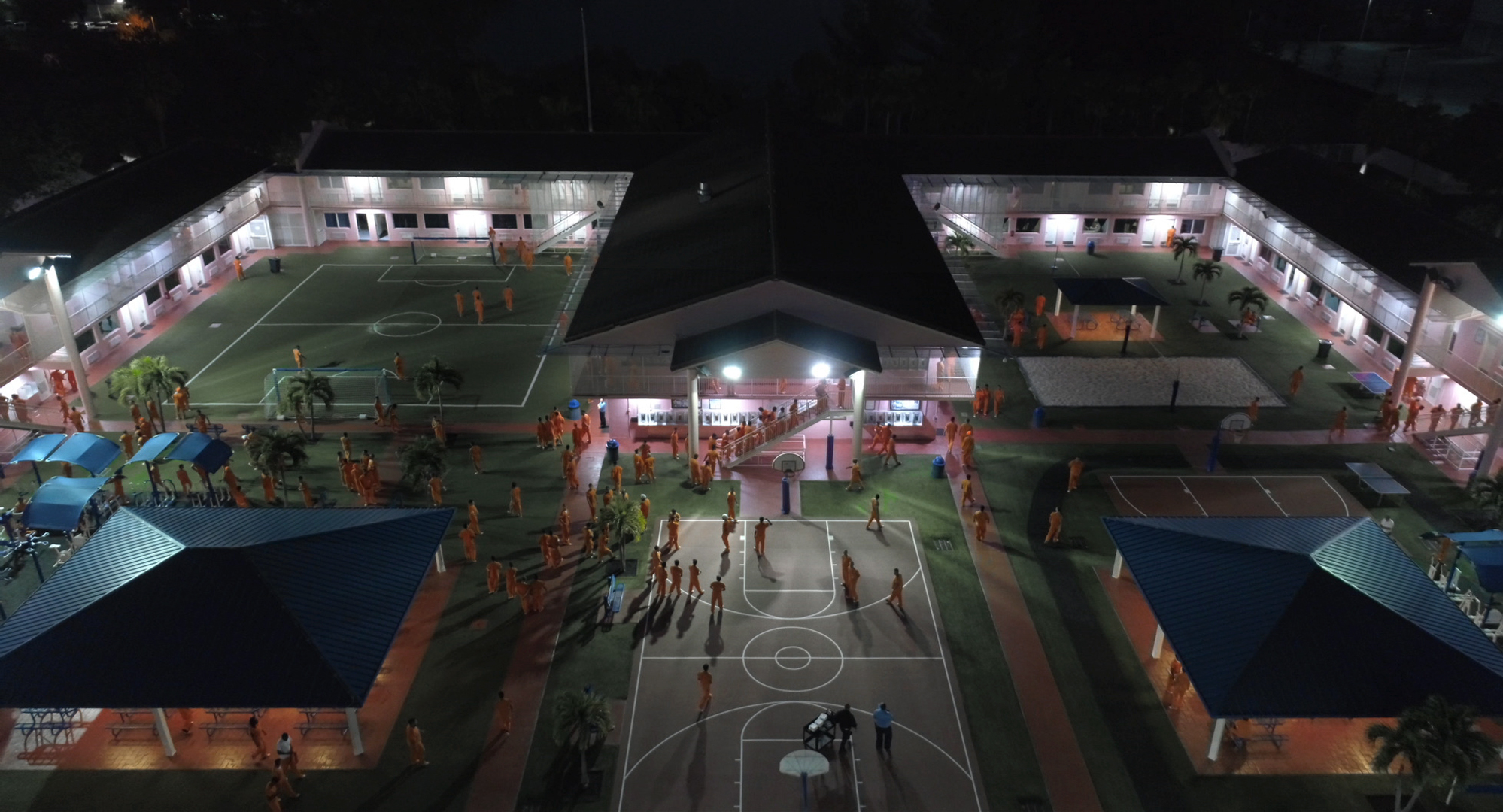

Film still from The Infiltrators. (Courtesy of Oscilloscope)
How would you weave together a story about a group of young DREAMer activists infiltrating an immigrant detention center? Would you resort to interviews and archival footage of the actual event or instead choose to reenact the entire real-life events in a dramatization? Or would you decide to do both.
Back in 2012, young immigrant activists were detained by the U.S. Border Patrol and held at an immigrant detention center in Broward, Florida. The activists are Marco Saavedra and Viridiana Martínez, both members of the National Immigrant Youth Alliance (NIYA), a group of DREAMers whose mission is to stop unjust deportations. Though it was hard at first, it eventually caught the media’s attention and brought a spotlight to the lucrative business ran at for-profit immigrant detention facilities.
Directors Alex Rivera and Cristina Ibarra create a unique hybrid film to expose the shadiness inside the Broward Transitional Center. By combining a conventional documentary form (footage and on camera interviews with the real infiltrators) and a scripted narrative —reenactments of events inside the facility brought to life by professional actors— The Infiltrators is both a suspenseful docu-thriller (as the directors like to call it) and an emotional political tale of young activists fighting for justice.
The premise is simple: the real-life Claudio Rojas (character played by Manuel Uriza in the dramatization) is detained by ICE officials and is transferred to the Broward Transitional Center, a detention facility where most detainees face imminent deportations. Claudio’s son contacts the National Immigrant Youth Alliance (NIYA) —a group of activist DREAMers infamous for raising awareness of the mistreatment of immigrants and for stopping deportations— because he’s scared of not seeing his father again. Headed by their leader Mohammad Abdollahi, the group’s strategy is to have Marco self-deport, infiltrate the detention center Claudio is at and prevent his deportation.


Film still from The Infiltrators. (Courtesy of Oscilloscope)
Though NIYA’s Marco is successful in infiltrating the detention facility, once inside they discover that like Claudio, the facility also houses hundreds of immigrants —many held in custody due to minor offenses like not having a driver’s license— with scheduled dates for deportations.
But the young activists also realize that the facility has a male-only and female-only wings. So the group decides that DREAMer Viridiana (brought to life by Chelsea Rendón in the dramatization) will self-deport and access the remaining wing left to infiltrate. She too was successful. Once inside, there was no way back. Their history and the stories of those immigrants whom they help change forever.


Film still from The Infiltrators. Courtesy of Oscilloscope.
In a recent interview with the Museum of Moving Image Curator of Film Eric Hynes, Ibarra reflected on the thought process that went into coming up with the documentary’s hybrid result. “How do we want to tell the story?” According to Ibarra, selecting Broward as the main event was the first choice. She and co-director Rivera were well aware that their camera couldn’t capture what went on inside the facility once Marco and Viridiana got detained. They debated on how to tell that part of the story. Would it be through animation? Or through archival footage. At the end, they turned to “acting” as their choice to convey the dramatic stakes and enhance the viewing experience.
It sure wasn’t an easy feat. “We thought about recreating what we could not see, which was inside the detention center primarily,” Rivera said in the same interview. He admitted that for a while they thought about approaching the film like Lars Von Trier’s Dogville, which takes place on a stage with a minimalist scenery. There’s some walls and furniture placed on the stage, but the rest of the scenery is juxtaposed against a white screen. The staging mirrors that of black box theaters. This result would’ve been a very experimental take, giving it a theater-esque vibe that might have distracted the audience from the topic at hand.


Film still from “The Infiltrators.” Courtesy of Oscilloscope.
But once the directors chose the missing piece of the puzzle of sorts, their storytelling came to life. “We wanted to use this experimental form [reenactments of real events and footage of the real-life infiltrators] to help people think about detention and immigration and the strategies of undocumented strategists. We had to use a weird form to tell this story, but we didn’t want the form to actually be what the film was about,” Rivera said.
Watching the documentary in 2020 definitely puts things into perspective. For one, the events take place during the Obama administration, a time that wasn’t too friendly to immigrants either—not for nothing Barack Obama is referred to as “deporter in chief,” having deported more than 3 million immigrants during his tenure.
Fast forward to the present time with the Trump administration and its complete dehumanization of immigrants and it seems that injustice befalls immigrants and nothing changes. From children separated from parents and put in cages to overcrowded detention facilities, the suffering of vulnerable immigrants is both exploited and almost pushed to the sidelines by mainstream media.
One can’t stop to think about the many ways immigrants are treated now during COVID-19. Back in March, Mother Jones broke the story about ICE detainees pepper-sprayed during a coronavirus briefing at the LaSalle ICE Processing Center in Jena, Louisiana.
Latino Rebels Radio host Julio Ricardo Varela had the chance to speak to immigration attorney Mariel Villarreal via phone to discuss what her client told her about the incident at the LaSalle Detention Facility. Rivera also made a recent appearance on Latino Rebels Radio Live about the film.
It’s frustrating, but what’s depicted in The Infiltrators is yesterday’s —and in many ways— still today’s news. The documentary’s power is twofold: it lies in it’s hopeful reminder about the laborious work done by activists to bring humanity and justice back to undocumented immigrants’ life and in its sobering reminder of the long work still ahead.
The Infiltrators is now available for viewing through virtual cinemas. Find out more by going to their site here.
***
Luis Luna is Latino Rebels’ arts writer and associate producer of Latino Rebels Radio. He tweets from @luarmanyc.


